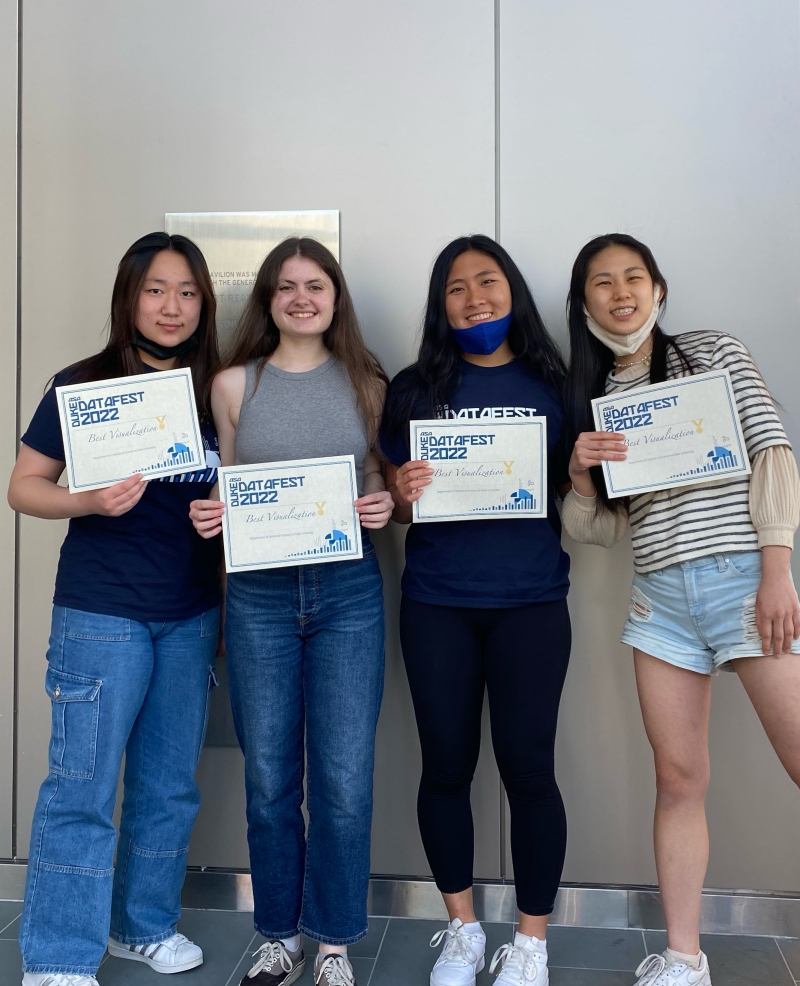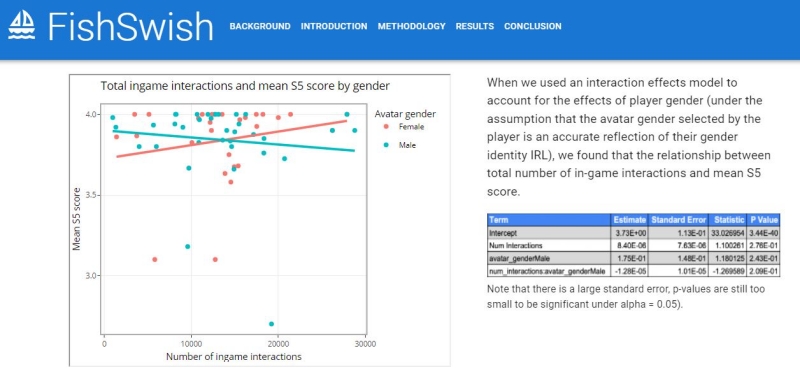
Four members of the award-winning DKU DataFest team (from left to right): Emily Du, Rebecca Combs, Athena Yao and Helene Gu.
A team containing Duke Kunshan undergraduates pitted against graduate students has scooped a top award in a Duke University data analysis competition.
The five-strong outfit won the Best Visualization Award for the interactive website they built from scratch to present their analysis of data from an educational game designed to help young people resist temptations such as recreational drugs.
The stunning collective performance of DKU freshmen Rebecca Combs and Helene Gu alongside Duke sophomores Emily Du, Athena Yao and Jenna Boguslavsky at the ASA Duke DataFest 2022 held on the North Carolina campus in early April has even triggered calls from within the team to run a similar competition at Duke Kunshan.
“As freshmen who were up against Duke graduate students, winning the Best Visualization Award was a dream come true,” said Combs, who is from Boston, Massachusetts, and studies computer science at DKU.
The exercise was based on data collected from the choices made by users of the “PlayForward: Elm City Stories” video game. Developed by the Yale Center for Health, it aims to prevent young people from engaging in negative and risky behaviors.
The team also analyzed the results of a survey asking players to rate how confident they were in resisting peer pressure to take drugs.
As part of their research, the team looked for predictors in the game that might provide insight into youngsters’ real-world ability to avoid the lure of drugs, which could form the basis for support interventions.
They found possible limitations in the game as a predictive and behavior-changing tool because of the prospect of students failing to replicate their good decisions in the real world, but suggested the minigames within could prove useful.
When deciding how to present the data, the team noticed that while previous DataFest winners had created impressive visualizations they were not hosted in a centralized location.
Drawing on web development experience, they built a site using javascript framework React.js that was then loaded with their own interactive visualizations developed through ggplot2, an open-source data graphics package based on the statistical programming language known as R.

“Web development is not seen often within the field of data science, but it can make all the difference when it comes to presenting data,” Combs said.
“I think the judges were impressed that by simply going to the domain fishswish.net, they could look at all our results in one place in seconds.”
Gu, a freshman from near Chicago, Illinois, said the competition helped develop her data interpretation skills, adding she hoped to one day take part in a similar event at DKU.
“We were actually talking about starting DataFest at DKU by gathering a dataset throughout the year,” said Gu, who plans on studying behavioral science with a track in neuroscience at DKU and aims for a career as a psychiatrist and medical researcher.
“DataFest was fun and you definitely don’t need more than basic experience with R to participate and try to find something. Like the organizers said, it’s really low stakes and there are lots of people there to help you.”
Organized by Duke’s Department of Statistical Science, the university’s edition of the ASA was held from April 1-3.

